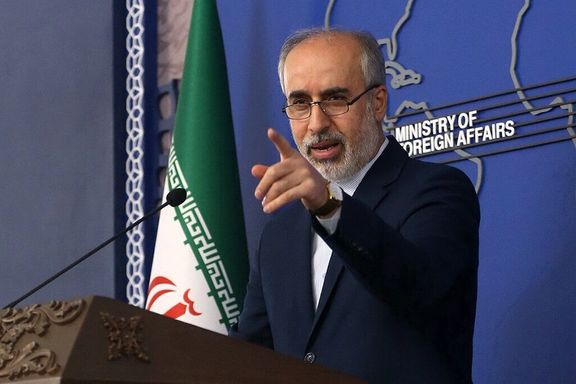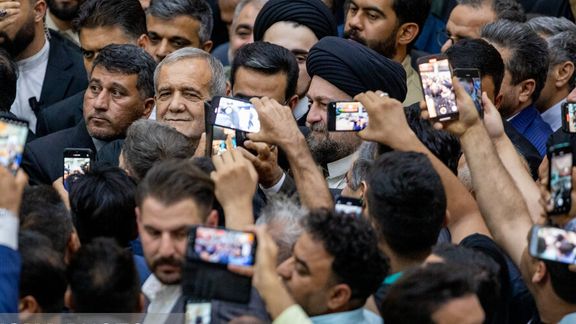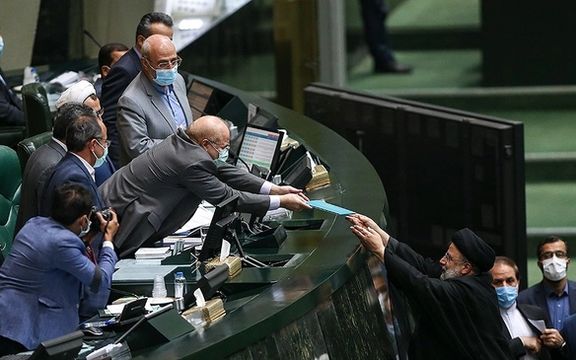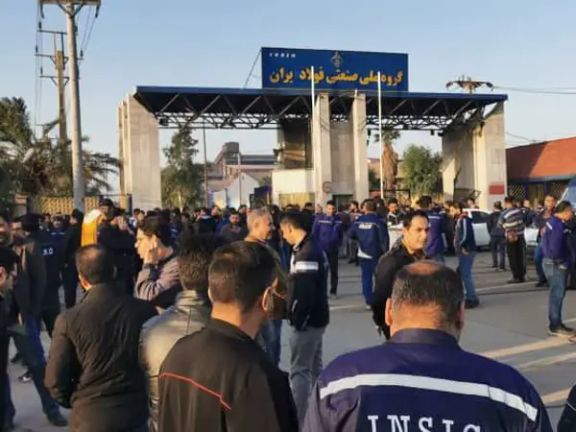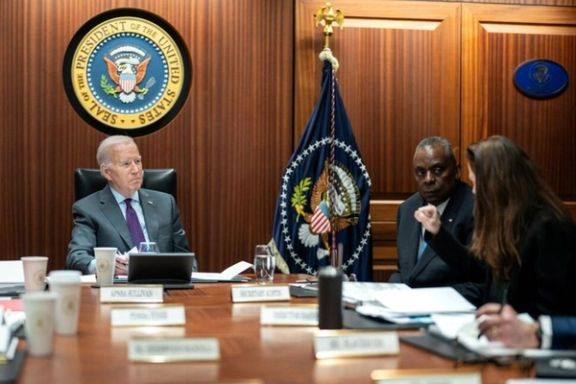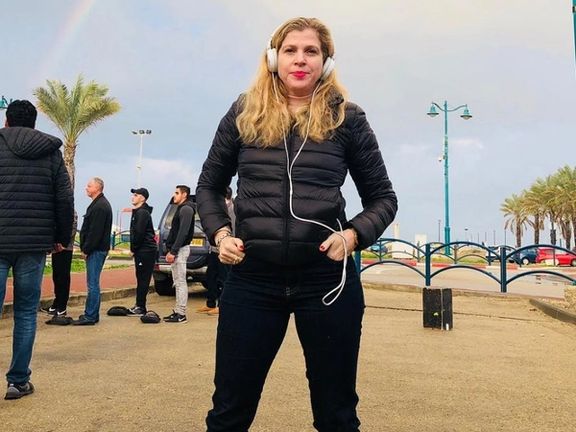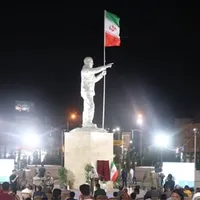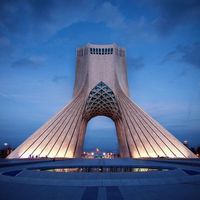The tankers are the most visible aspect of a massive operation to truck oil from the semi-autonomous region of Iraq to Iran and Turkey in murky, off-the-books transactions that have boomed since an official export pipeline closed last year.
Reuters pieced together the details of this flourishing trade through conversations with over 20 people including Iraqi and Kurdish oil engineers, traders and government officials, politicians, diplomats and oil industry sources.
They painted a picture of a booming business in which more than 1,000 tankers carry at least 200,000 barrels of cut-price oil every day to Iran and, to a lesser extent, Turkey - bringing in about $200 million a month.
The scale of the unofficial exports, which has not previously been reported, is one reason Iraq has been unable to stick to output cuts agreed with the OPEC oil cartel this year, Iraqi officials said.
Iranian and Turkish officials did not respond to requests for comment.
Iran’s deputy road and urban development minister, Jalil Eslami, told ILNA news agency in Tehran on Thursday that oil from Iraqi Kurdistan transits through Iran and exported via the Persian Gulf. He provided no numbers or any other details.
Iraqi oil ministry spokesperson Assim Jihad said the Kurdistan trade was not approved by the Iraqi government and state oil marketer SOMO was the only official entity allowed to sell Iraqi crude.
He said the government did not have accurate figures for how much oil was being smuggled into Iran and Turkey.
"OPEC now has less patience for smuggling and has even been known to slap punitive measures on offending members. I doubt we'll see any retribution against Baghdad because it's well known that the Kurdish region lies outside central control," said Jim Krane at Rice University's Baker Institute in Houston.
The business could also put Kurdistan on a collision course with close ally Washington, as it assesses whether the trade breaches any US economic sanctions on Iran, according to a US official.
Until last year, Kurdistan exported most of its crude via the official Iraq-Turkey Pipeline (ITP) running from the Iraqi oil city of Kirkuk to the Turkish port of Ceyhan.
But those exports of about 450,000 barrels per day (bpd) halted in March 2023 when an international tribunal ruled in favor of the Iraqi federal government's call for the shipments to stop - leaving the pipeline in legal and financial limbo.
The federal administration in Baghdad, which has long held that it is the only party authorized to sell Iraqi oil, successfully argued that Turkey arranged the exports with the Kurdistan regional government without its consent, in breach of a 1973 treaty.
'NO TRACE'
Tankers soon started taking Kurdish oil to neighboring countries instead and the business accelerated this year after talks to reopen the pipeline stalled, industry sources, oil officials and diplomats said.
Local officials said none of the proceeds are accounted for, or registered, in the coffers of the Kurdistan Regional Government (KRG), which has been struggling to pay thousands of public employees.
"There is no trace of the oil revenues," said regional lawmaker Ali Huma Saleh, who was chair of the oil committee in Kurdistan's parliament until it was dissolved in 2023. He put the trade at over 300,000 bpd, higher than most other estimates.
Hiwa Mohammed, a senior official in the Patriotic Union of Kurdistan (PUK), one of Kurdistan's two ruling parties, said the oil was going through border crossings with the knowledge of the regional and federal governments.
KRG Treasury officials did not respond to requests for comment. The KRG Ministry of Natural Resources, which oversees oil trading in Kurdistan, does not have a spokesperson.
A US official said Washington was looking at the oil trade to assess compliance with sanctions on Iran.
The US Treasury Department declined to comment.
A State Department official said: "US sanctions on Iran remain in place, and we regularly engage with partners on sanctions enforcement issues, but we do not detail those conversations."
A senior official at Kurdistan's natural resources ministry said oil production in the region was running at 375,000 bpd, of which 200,000 was trucked to Iran and Turkey, and the rest refined locally.
"Nobody knows what happens to the revenues from the 200,000 smuggled abroad, or the oil derivatives sold to refineries in the region," said the official, who declined to be named because the sensitivity of the matter.
CUT-PRICE CRUDE
The crude is sold by oil companies in Kurdistan to local buyers at cut-price rates of $30 to $40 a barrel, or about half the global rate LCOc1, which equates to at least $200 million a month in revenue, industry and political sources said.
Kurdistan's oil production is majority controlled by eight international oil firms: DNO ASA DNO.OL, Genel Energy GENL.L, Gulf Keystone Petroleum GKP.L, ShaMaran Petroleum SNM.V, HKN Energy, WesternZagros, MOL's MOLB.BU Kalegran and Hunt Oil Company.
Hunt Oil, based in the United States, declined to comment. The other seven companies did not respond to requests for comment, nor did local company KAR Group, a major player in Kurdistan.
While most oil production halted when the pipeline closed, some companies including DNO, Keystone and ShaMaran have said in statements they have since started producing crude for sale to buyers within Kurdistan.
ShaMaran said the average price of oil it sold in the first three months of 2024 was $36.49 per barrel while Keystone said in June that sales of crude from the Shaikan Field this year were bringing in about $28 a barrel.
The industry sources said approved local buyers take the crude from oil companies and sell it on through middlemen for export, without the knowledge of the producers.
The vast majority of the trucked oil goes to Iran, most of the industry and political sources said, via official Iraqi border crossings including Haji Omaran, or via Penjwen further south.
From there, it is loaded onto ships at Iranian ports in the Gulf at Bandar Imam Khomeini and Bandar Abbas - a trade route used in the past for Kurdish oil exports - or transferred by road to Afghanistan and Pakistan, industry, political and diplomatic sources said.
Reuters could not determine what Iran, which faces difficulties selling its own oil products because of sanctions, gets out of the trade, nor who is receiving the oil in Iran.
The PUK's Mohammed said it was sent to Iran to be refined into gasoline.
Pakistan's petroleum ministry declined to comment. Afghan officials did not respond to requests for comment.
BLACK-MARKET LABYRINTH
The trade is the latest iteration of a long-standing Iraqi black-market oil business widely seen as benefiting political elites who are closely linked to business interests.
Twelve people said officials in Kurdistan's two ruling parties, the Kurdistan Democratic Party (KDP) of the Barzani clan and the PUK of the Talabani clan, were the beneficiaries.
"There is a labyrinth of black-market salespeople getting paid, and people approving those sales. It's not that they are just looking the other way. They're taking their share," an industry source working in the Kurdish oil trade said.
A senior diplomat in Baghdad said political interests were so vested in the trade that resuming official exports via the pipeline, once seen as a priority, had dropped down the diplomatic agenda.
"I'm not going to be advocating for this while they're all having a party," the person said.
KDP officials did not respond to requests for comment about the black-market trade. Mohammed, the PUK official, did not comment on who might be behind it.
Kurdish officials say the region was forced into the trade by the pipeline closure, which they see as part of a broader effort by Iran-backed Shi'ite parties in Baghdad to curb the relative autonomy they have enjoyed since the end of the first Gulf war in 1991.
A senior Iraqi parliamentary official familiar with oil matters said Baghdad was aware of the details of the business but was avoiding public criticism as officials seek to resolve outstanding disputes with Erbil.
Putting pressure on Erbil to stop oil smuggling would corner the region and deprive it of all sources of funding, which could result in its collapse, said the person, who declined to be named due to the sensitivity of the issue.
The trade has been cited privately by Iraqi officials as being behind Baghdad's inability to stick to its OPEC production quotas, a bone of contention with OPEC's de facto leader Saudi Arabia.
Jihad, the oil ministry spokesman, said Iraq, which has pledged to scale back output this year to make up for the overproduction, was committed to voluntary production cuts.
For now, the sheer volume of tankers snarling up highways, and getting involved in accidents, is angering residents along major thoroughfares.
"It's very painful," said Rashid Dalak, visiting the grave of his brother Rouzkar, who was killed in a crash with a tanker in May on the highway between Erbil and Sulaimaniya that leads to the Iranian border.
"Despite passing through and damaging our roads and killing our loved ones ... no-one here has seen a dollar."
(Report by Reuters)


